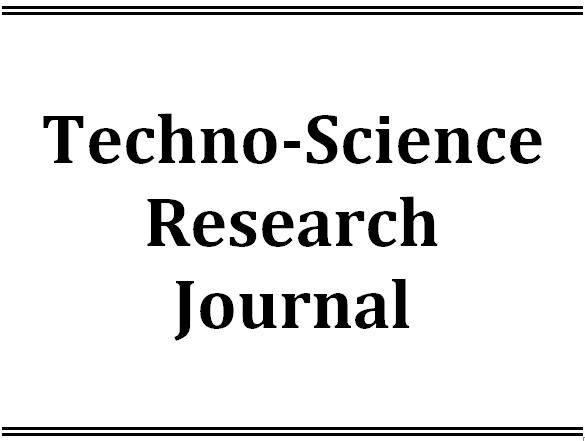Latest Issue
Empowering Education with Online Khmer Handwritten Text Recognition for Teaching and Learning Assistance
Published: August 30,2025Undergraduate Student Dropout Prediction with Class Balancing Techniques
Published: August 30,2025Status of Seawater Quality at Koh Rong Island, Sihanoukville, Cambodia
Published: August 30,2025Low-Complexity Detection of Primary Synchronization Signal for 5G New Radio Terrestrial Cellular System
Published: August 30,2025Word Spotting on Khmer Printed Documents
Published: August 30,2025Tuning Hyperparameters Learning Rate and Gamma in Gym Environment Inverted Pendulum
Published: August 30,2025Examining Passenger Loyalty in Phnom Penh Public Bus System: A Structural Equation Modelling Approach
Published: August 30,2025Prediction on Load model for future load profile of Electric Vehicle charging demand in Phnom Penh
Published: August 30,2025Economic Study on Integrating PV-DG with Grid-Tie: Case Study in Cambodia
Published: August 30,2025Experimental Studies on Hydrothermal Processes of Municipal Solid Waste to Produce Solid Fuel
-
1. Department of Industrial and Mechanical Engineering, Institute of Technology of Cambodia, Cambodia
Academic Editor:
Received: January 20,2024 / Revised: / Accepted: January 20,2024 / Available online: June 01,2013
Global warming and energy crisis (increasing of energy demands, depletion of fossil fuel, and increasing of fuel price) are hot issues in the world. The Municipal Solid Waste (MSW) production in big cities such as Bandung (Indonesia), which causes Environmental problem such as Green House Gases (GHG)comprised of CH4 and CO2, increases significantly with economic and populations growth. It becomes hard to handle the problem of MSW because the only method available is open dumping, and finding open land near Bandung for this method becomes more difficult. Moreover the availability of fossil fuel such as Coal cannot last long; so the other alternative fuel is needed. Using the Hydrothermal process to reduce the volume of the MSW which is mostly organic component and to utilize the solid powder resulted as solid fuel for co-firing with coal in Power Plant will benefit not only in solving the MSW problem but also reducing the coal consumption in the power plant. In this study, the hydrothermal processes were done by using a laboratory scale apparatus with MSW components as the samples. The experiments were done at various temperatures, 180 oC, 200 oC, and 220oC inside an experimental autoclave. After hydrothermal process, the processed sample was dried in an oven for 24 hours and then was crushed. The final product is like powder which is concludes as solid fuel. The final step is properties analyses. The results of the experiments show that the process time, the water amount and the temperature which are applied in hydrothermal process, affect the proximate compositions. The moisture and fixed carbon content decrease and the volatile matter increases, so that the MSW’s calorific value increases. Based on the experiments, it can be concluded that hydrothermal process can be applied to produce solid fuel from MSW.

